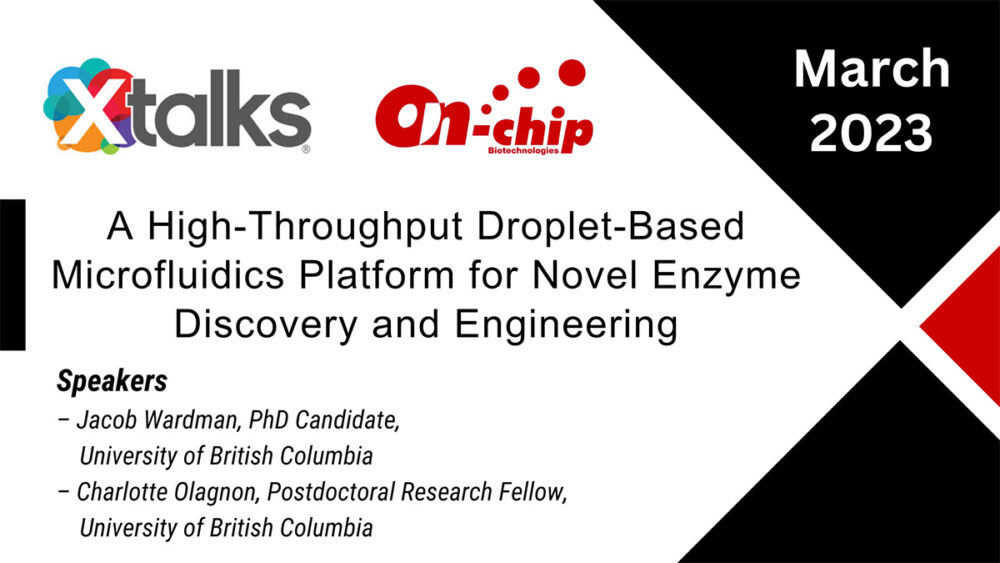Droplet-based microfluidics has proven itself to be a powerful tool for the discovery and engineering of enzymes. By miniaturizing assays within droplets to the pL scale, microfluidics enables the screening of large genetic libraries with substantially less substrate use compared to conventional microtitre plates. Moreover, with the appropriate droplet sorter this can be conducted high throughput with libraries of 105 clones being readily screened. In this webinar, the featured speakers will describe how they have applied the On-chip Sort for ultrahigh-throughput enzyme discovery (via functional metagenomic screening) and enzyme engineering by directed evolution.
Both of these techniques allow for the discovery of novel enzymatic activities through exploration of sequence space. In the functional metagenomic screen, they were able to isolate a single active clone from a library of 19,500 clones in a single sort. Such low hit rates are typical in functional metagenomics and highlight the need for high-throughput assays in order to identify active clones. Meanwhile, a single round of the directed evolution campaign in droplets (with a library of 100,000 clones) revealed a panel of clones with improvements from five to 35-fold enhancements in activity compared to the parent. Both of these examples are enabled by the miniaturization offered by microfluidics as the screens required the use of oligosaccharide substrates. At these scales the cost of substrate would be prohibitive if done in microtitre plates. Such results highlight the utility of droplet-based microfluidics for the rapid exploration of sequence space where other assays may be otherwise unfeasible.
Speakers:
– Jacob Wardman, PhD Candidate, University of British Columbia
– Charlotte Olagnon, Postdoctoral Research Fellow, University of British Columbia

